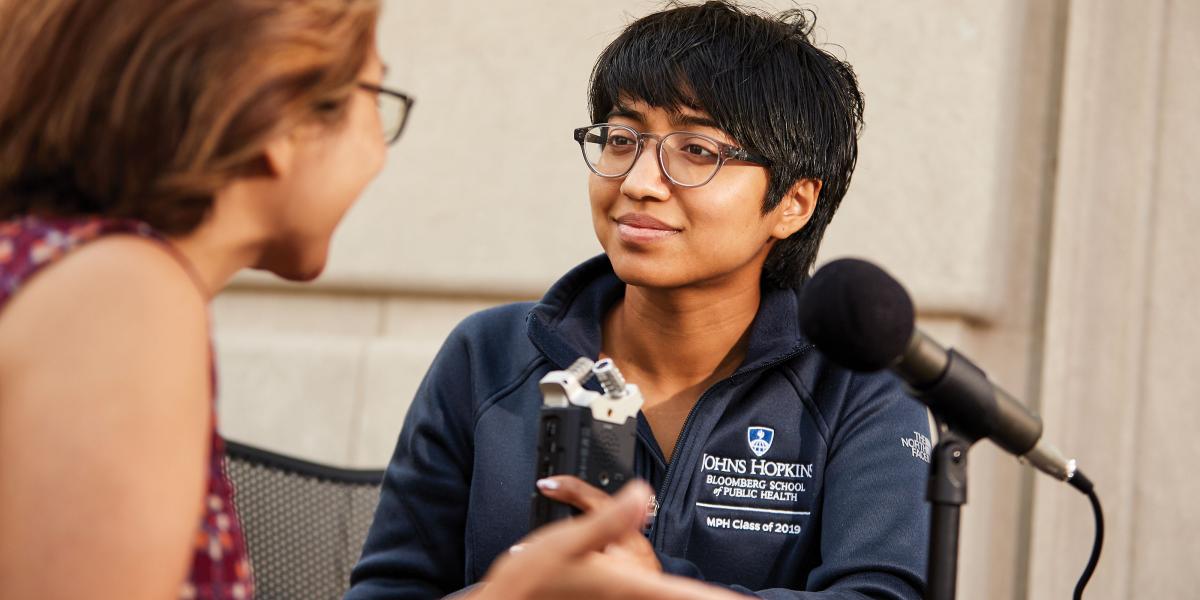The Hard Truth
Public health needs journalism. And vice versa.
Isabella Gomes’ cover story should break your heart.
Gomes, a former investigative reporter for the Miami New Times and a 2019 MPH alum, has interviewed women, health care providers, and others in New York, Philadelphia, and Los Angeles about sex trafficking in the U.S. She crafted an article that is not easy to read—or forget.
One of the reasons she came to the Bloomberg School for her MPH was the Johns Hopkins-Pulitzer Global Health Reporting Fellowship, which the School launched with the Pulitzer Center in 2013. Having already spent several years researching human trafficking and violence, she saw the fellowship as a way to use her journalism skills to expose a pressing public health issue.
Gomes, the 2019 Pulitzer fellow, spent last summer interviewing women who survived being trafficked. Her article is important reading because there’s no solution without awareness.
Journalism and public health have much in common. They share many of the same tools (evidence, data); skills (listening, analyzing); and aspirations (pursuing truth, improving society). And they often rely on each other: Journalists need expert perspectives; public health professionals need research and issues that affect people’s lives to be shared broadly.
We’ve all read articles about journalism’s struggles in the digital age. The job losses. The closures of local papers. Journalists have been battered, but they’re tough. They persist. And that’s good news for public health.
